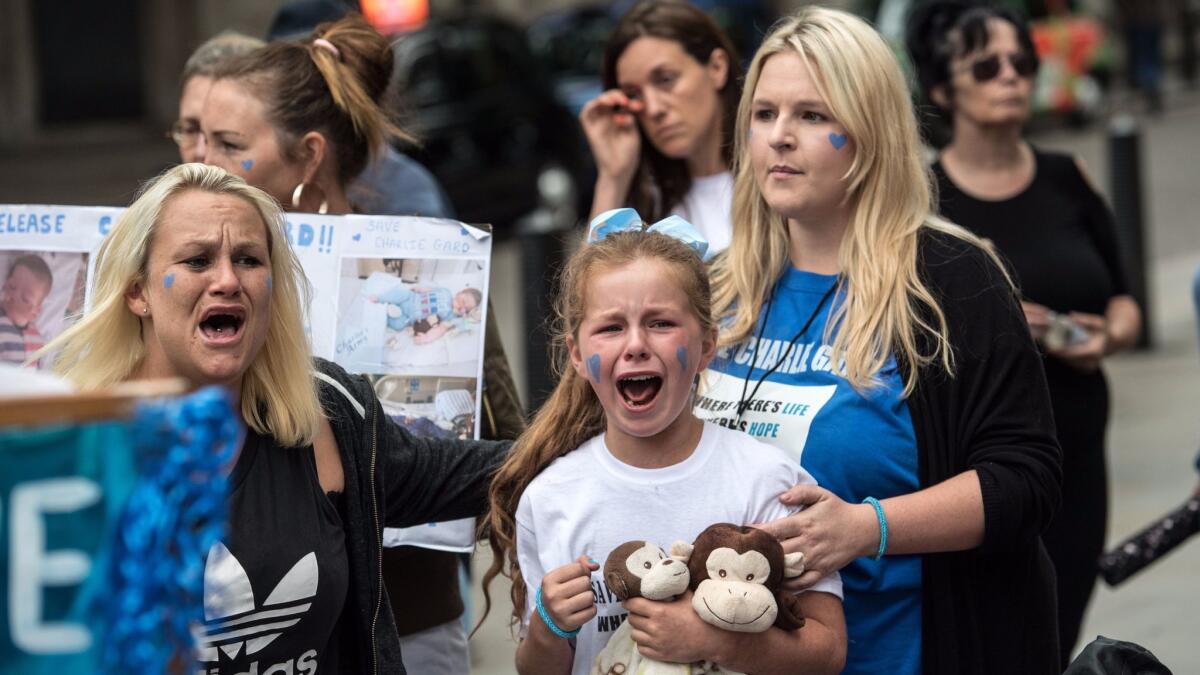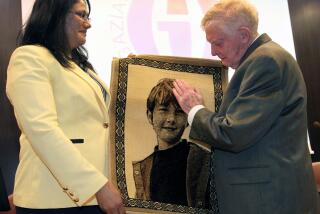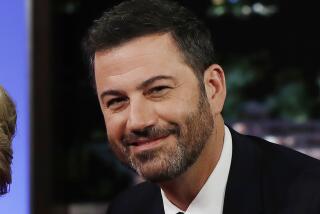‘For Charlie, it’s too late’: Parents of British baby abandon legal fight to get treatment in U.S.

The parents of Charlie Gard, the 11-month-old British baby who is suffering from a terminal illness, said Monday that they had withdrawn their application to allow him to be transferred to the U.S. because it was too late for treatment to save his l
Reporting from London — Quiet sobs reverberated in a London courtroom Monday as the parents of the terminally ill baby Charlie Gard told a judge they had decided to let their “sweet, gorgeous and innocent” boy go and were withdrawing a bid to take him to the United States for experimental treatment.
Bowing to the consensus of medical experts, Charlie’s mother, Connie Yates, said the couple no longer believed that the treatment would help their child.
“We only wanted to give him a chance at life,” Yates said, fighting back tears of her own. “There’s now no way back for Charlie. Time has been wasted. It’s now time that has suddenly gone against him.”
The boy’s father, Chris Gard, stood close behind Yates as she delivered their statement in London’s High Court. When she had finished speaking, he stepped forward and hugged her.
The parents’ decision brings to a close months of emotional legal battles that raised difficult questions about who gets to decide the fate of a desperately ill child when parents and medical professionals cannot agree on a course of treatment.
The 11-month-old boy, who suffers from a rare genetic condition that has left him unable to see, hear, move or breathe on his own, will now be taken off a ventilator and receive palliative care only.
The case resonated in the U.S., where it coincided with efforts by the Republican Party to roll back the Affordable Care Act and revived public debate about the role of government in the provision of healthcare. President Trump and Pope Francis tweeted their support for the parents’ campaign to keep Charlie alive.
But the London facility that has been caring for Charlie, the Great Ormond Street Hospital for Children, argued that further treatment would be futile and might cause the boy additional suffering.
The hospital obtained a court order in April allowing doctors to withdraw life support so Charlie could “die with dignity.” Britain’s Court of Appeal and the Supreme Court of the United Kingdom agreed with the decision, and the European Court of Human Rights in Strasbourg, France, declined to take up the case last month.
That might have been the end of the case. But when hospital officials were contacted by facilities in the United States and Italy willing to take over Charlie’s care, they agreed to return to the original court to give the judge a chance to reconsider.
Charlie suffers from an inherited condition known as mitochondrial DNA depletion syndrome, which prevents energy from getting to the child’s muscles, kidneys and brain.
The family was pinning its hopes on a treatment proposed by Dr. Michio Hirano, a neurologist at Columbia University Medical Center, and had raised more than $1.7 million through a crowdfunding website to take the boy to New York.
Hirano testified over a video link that there was a “small but significant” chance that Charlie might regain some muscle function with a treatment known as nucleoside therapy. But it has never been tried on someone with Charlie’s version of the condition.
Hospital officials in Britain said they had been willing to consider nucleoside therapy until Charlie suffered seizures that left him with severe brain damage, which they did not believe could be reversed — a conclusion disputed by his parents.
Judge Nicholas Francis asked Hirano to come to London last week to evaluate Charlie in person for the first time and meet with his medical team. The couple’s lawyer, Grant Armstrong, told the court Monday that new scans showed Charlie had suffered irreparable muscular damage, leaving no chance for the therapy to work.
“Some cases are about legal facts and expert opinions…. Some cases are also about time, and sadly this case is now about time,” Armstrong said. “For Charlie, it’s too late.”
In a statement Monday, Great Ormond Street Hospital took note of the “agony, desolation and bravery” of the parents’ decision, which it said had commanded the “utmost respect” of all who work at the medical center.

In the months ahead, the hospital said, its staff would be giving careful thought to what could be learned from “this bruising court case.” Hospital officials hope, the statement added pointedly, that the outside medical experts who “provided opinions that have so sustained Charlie’s parents” might similarly “find much upon which to reflect.”
The judge had strong words Monday for those who weighed in on the debate in the press and on social media, even though details of the case were protected by patient confidentiality rules.
“A lot of things have been said by those who know almost nothing about this case but feel entitled to express opinions,” Francis said. There were even threats made against the medical personnel at Great Ormond Street Hospital.
Medical ethics experts said the case had become politicized in the U.S. because of the debate over Obamacare.
Last week, a congressional committee voted unanimously to approve an amendment that would grant permanent U.S. residency to Charlie and his parents. Conservative Christian and anti-abortion groups in the U.S. also took up the family’s cause.
“I can definitely sympathize with the doctors’ perspective, if they believe this truly is non-beneficial care that is actually harming a patient and not benefiting them,” said Dr. Aaron Kheriaty, director of the medical ethics program at UC Irvine. “But the whole notion that we would not allow the parents to seek other forms of care elsewhere, that’s a notion that I find troubling. It’s very foreign to how things would be done typically in the United States.”
There are differences, however, between British and U.S. law. Under British law, when disputes arise over a course of treatment, courts are required to make a determination about what is in the best interests of the patients.
“It’s not for the doctors to decide that unilaterally, but if they can’t reach a common view with the family, then the court takes over,” said Jonathan Montgomery, a professor of healthcare law at University College London.
Still, he questioned why the court hadn’t asked Hirano to complete a full evaluation months ago, when he provided testimony during the initial hearings.
“We’ll never know whether that brain scan would have looked the same back in April, and I think that raises questions about our court processes,” Montgomery said.
Although hospital officials contend the new tests confirmed what was already known, Charlie’s parents are convinced that a chance was missed to prolong their son’s life.
Speaking outside the High Court, Chris Gard, his voice breaking at times, said the couple’s fight was never about proving that “parents know best.”
“All we wanted was to take Charlie from one world-renowned hospital to another world-renowned hospital in the attempt to save his life,” Gard said. Instead, he said, Charlie was left to “deteriorate devastatingly,” and it was now time for him to “be with the angels.”
Demonstrators, who gathered outside court holding pale blue balloons, shouted “Shame on you, judge” and “Shame on you, GOSH” — an acronym for the hospital where Charlie is being treated.
Charlie’s parents have said that they hope to set up a foundation in the boy’s name “so his voice can continue to be heard.” They appealed for privacy Monday as final arrangements are made for the boy.
“We are so sorry that we couldn’t save you,” Yates said. “We had the chance, but we weren’t allowed. Sweet dreams, baby boy. Sleep tight, our beautiful little boy.”
Special correspondent Boyle reported from London and Times staff writer Zavis from Los Angeles.
ALSO:
An outspoken researcher of Stalin’s crimes fights for his own fate and freedom in Russia
The ‘caliphate’ is all but lost, yet Islamic State’s threat remains potent
Same-sex couples and supporters praise Germany’s legalization of same-sex marriage
UPDATES:
6:25 p.m.: This article was updated with additional analysis and details from the court hearing.
12:30 a.m.: This article was updated with additional reaction and background about the case.
8 a.m.: This article was updated with quotes from the hearing, new details and more background.
This article was originally published at 6:40 a.m.
More to Read
Sign up for Essential California
The most important California stories and recommendations in your inbox every morning.
You may occasionally receive promotional content from the Los Angeles Times.











